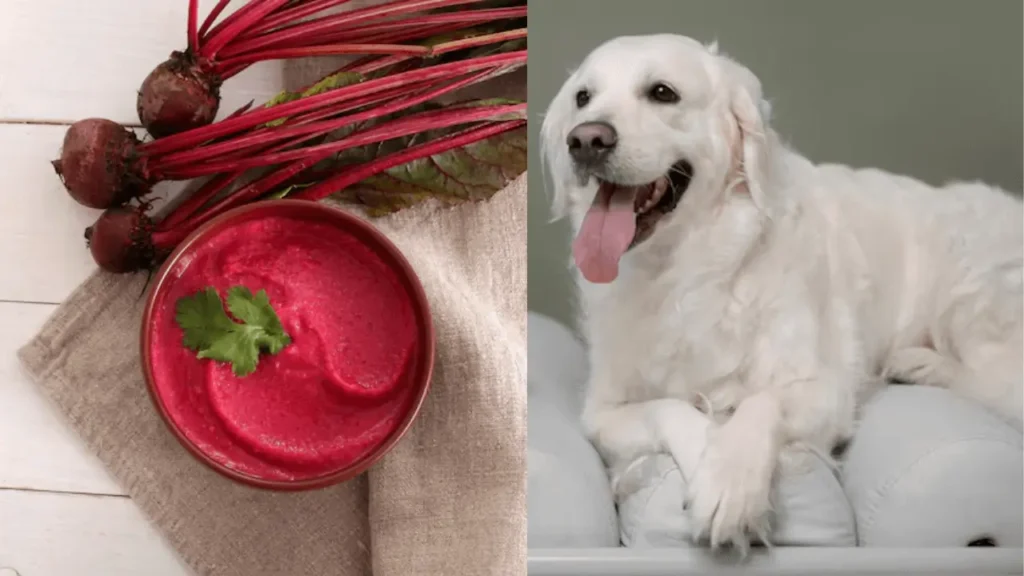Can Dogs Eat Beets? Health Benefits, Risks, and Preparation Tips
As a devoted pet owner, you might find yourself questioning which foods are safe and beneficial for your dog. One vegetable that often comes up in discussions is beets. Known for their striking color and numerous health benefits, beets are nutritious, but the question remains: can dogs eat beets? In this article, we will explore the safety, health advantages, preparation techniques, and potential drawbacks of feeding beets to dogs.

Table of Contents
- What Are Beets?
- Nutritional Value of Beets
- Benefits of Feeding Beets to Dogs
- Can Dogs Safely Consume Beets?
- How to Prepare Beets for Dogs
- Risks Associated with Feeding Beets to Dogs
- Signs of Allergic Reactions in Dogs
- Common Questions About Dogs and Beets
- Conclusion
What Are Beets?
Beets, scientifically referred to as Beta vulgaris, are root vegetables widely recognized for their rich red hue, although they can also appear in shades of yellow and white. These nutritious roots have been consumed for centuries and are celebrated not only for their flavor but also for their health benefits. Commonly used in salads, juices, and various dishes, beets are versatile and can be a colorful addition to your diet.
Nutritional Value of Beets
Beets are packed with nutrients that can be beneficial for both humans and dogs. They are a great source of:
- Vitamins: High levels of Vitamin C, which supports immune function, and several B vitamins that play a role in energy metabolism.
- Minerals: Essential minerals like potassium, magnesium, and iron, which contribute to overall health.
- Antioxidants: Particularly rich in betalains, beets contain antioxidants that help fight oxidative stress.
- Dietary Fiber: Beneficial for digestive health, fiber aids in regulating bowel movements and preventing constipation.
Benefits of Feeding Beets to Dogs
Incorporating beets into your dog’s diet can offer various health benefits:
1. Rich in Antioxidants
The antioxidants present in beets can help protect your dog’s cells from damage caused by free radicals, potentially reducing the risk of chronic diseases.
2. Aids Digestive Health
The fiber in beets promotes a healthy digestive system by ensuring regular bowel movements and supporting gut health.
3. Supports Cardiovascular Health
Nutrients such as potassium and antioxidants found in beets can contribute to heart health, helping to regulate blood pressure and maintain a healthy heart.
4. Boosts Immune Function
The Vitamin C content in beets can enhance your dog’s immune response, making them more resilient to infections.
5. May Help Reduce Inflammation
Some studies suggest that the betalains in beets possess anti-inflammatory properties, which could be beneficial for dogs with inflammatory conditions.
Can Dogs Safely Consume Beets?
Yes, dogs can eat beets, but moderation is essential. While beets have numerous health benefits, they should not be a primary food in your dog’s diet. Here are some tips for safely including beets in your dog’s meals:
- Start Slowly: Introduce beets gradually to your dog’s diet. Begin with a small amount to monitor how they react.
- Cooked is Better: Always serve cooked beets instead of raw ones. Cooking makes them easier to digest and enhances their flavor.
- Monitor for Reactions: Keep an eye on your dog for any signs of allergies or digestive issues when introducing beets.
How to Prepare Beets for Dogs
Preparing beets for your dog is a simple process. Here’s how to do it properly:
1. Choose Fresh Beets
Select firm, vibrant beets. Look for those that are free from soft spots or blemishes.
2. Wash Thoroughly
Rinse the beets under running water to remove any dirt and pesticide residues, ensuring they are clean for your pet.
3. Cooking Methods
There are several ways to cook beets:
- Boiling: Cook whole beets in water until tender, about 30-40 minutes. Once cool, cut them into small pieces.
- Steaming: This method preserves nutrients. Cut the beets into quarters and steam until soft.
- Roasting: Wrap beets in foil and roast at 400°F (200°C) for about 45-60 minutes for a sweet flavor enhancement.
4. Serving Size
When serving beets, start with small portions. A few bites mixed into their regular food can help introduce them.
Risks Associated with Feeding Beets to Dogs
While beets are generally safe for dogs, there are potential risks to consider:
1. Oxalate Content
Beets contain oxalates, which can interfere with calcium absorption and may contribute to the formation of kidney stones in vulnerable dogs. It’s important to monitor the amount you feed them.
2. Allergic Reactions
Some dogs may be allergic to beets. Symptoms can include itching, swelling, vomiting, or diarrhea. If you notice any of these signs, stop feeding beets immediately and consult your veterinarian.
3. Digestive Upset
Feeding too many beets can lead to digestive upset, including gas and diarrhea. Always introduce new foods gradually to avoid these issues.
Signs of Allergic Reactions in Dogs
If you suspect your dog might be allergic to beets, look for these symptoms:
- Itching or Scratching: Excessive scratching can indicate an allergy.
- Gastrointestinal Issues: Vomiting or diarrhea can suggest sensitivity to beets.
- Swelling: Swelling in the face or limbs may indicate an allergic reaction.
If you observe any of these signs, it’s crucial to contact your veterinarian for advice.
Common Questions About Dogs and Beets
Can Puppies Eat Beets?
Yes, puppies can eat beets, but introduce them slowly and in small portions to avoid upsetting their sensitive digestive systems.
What If My Dog Eats Too Many Beets?
If your dog consumes a large amount of beets, monitor for signs of digestive upset, such as diarrhea. Contact your veterinarian if these symptoms occur.
Can Dogs Eat Beet Greens?
Yes, beet greens are also safe for dogs when washed and cooked. They can provide additional nutrients and are a healthy addition to your dog’s diet.
Are Pickled Beets Safe for Dogs?
Pickled beets are not suitable for dogs due to their high salt and sugar content. Always choose fresh or cooked beets.
What Other Vegetables Can Dogs Eat?
Dogs can enjoy a variety of vegetables, including carrots, green beans, sweet potatoes, and zucchini. Ensure that any vegetables offered are safe and prepared properly.
Conclusion
In conclusion, beets can be a nutritious and safe addition to your dog’s diet when prepared correctly and given in moderation. With their rich nutritional profile and health benefits, beets can provide a delightful treat for your canine companion. Always consult your veterinarian before introducing new foods to your dog’s diet, and keep an eye on their reactions to ensure their well-being. By incorporating beets thoughtfully, you can contribute to a healthy and varied diet for your beloved pet.

